![]()
By Gypsy Blue Rose

![]()
By Gypsy Blue Rose




![]()
By Gypsy Blue Rose

rain ricochets
on painted shut windowpanes
sound of loneliness
![]()
By Gypsy Blue Rose

![]()
By Gypsy Blue Rose
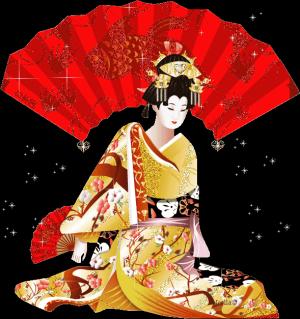

| Author Notes |
traditional haiku
kigo = lotus (hasu, late summer) white lotus significance 

|
![]()
By Gypsy Blue Rose

| Author Notes |
Traditional Haiku
5/7/5 in 3 lines KIGO barley in California grows in April KIREJI -- dash is a long pause kigo source https://www.nass.usda.gov/Publications/Usual_Planting_and_Harvesting_Dates/uph97.pdf |
![]()
By Gypsy Blue Rose

| Author Notes |
In the last two years, you have been there for me through thick and thin, through my highs as well as through my lows ... we made it through, together. Although, we are not blood related, I consider you a part of my extended family and I wish you all the best life has to offer for 2017 and more. We are all going to have the best year ever! Happy New Year!
May a God of your understanding bless you. Gypsy Liszt - Hungarian Rhapsody No. 2 Orchestra - Great Recording |
![]()
By Gypsy Blue Rose


| Author Notes |
I happen to love rednecks and this is not meant to be offensive. It's just a joke.
Thank you for reading, Redneck =a working-class white person from a rural area. Synonyms: provincial, informal yahoo, hick, hayseed Rendezvous = a favorite or popular gathering place |
![]()
By Gypsy Blue Rose
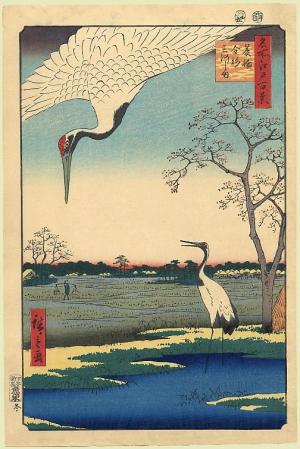
He sits quietly on his porch to write poetry. He enjoys the beautiful outdoors at a peaceful south Florida town close to the sea. The poems are sometimes funny, and other times insightful. His alter ego, Poetic Badger, is a belligerent companion with a potty mouth and a horrible attitude. In spite of his bad manners and mean spirit, everyone loves the little shit. Not too long ago, the poet learned to write haiku. Each day he gets better and better at the ancient poetic form. Recently, he dreamed of a heron. It's a mysterious bird, symbolic of serenity. His visionary ideas, big heart and wisdom, guide a group of haiku poets at a writers' social website called, FanStory. He sits on his porch to write poetry.
![]()
By Gypsy Blue Rose

![]()
By Gypsy Blue Rose


| Author Notes |
4/5/4 syllabic count
kigo is winter |
![]()
By Gypsy Blue Rose

The weather is getting warm in Sacramento. This morning on my way to the store, I saw a king walking towards me. His shimmering cadet blue cape waved haphazardly in the wind giving him an ethereal quality. As he moved closer I noticed it was not a king’s cape, it was a thermal blanket. I realized he was a homeless man on his way to nowhere. As he walked by me, we exchanged glances and bowed slightly.
eyes ablaze
reflect Indian Summer-
king of nothing
| Author Notes |
I like to dedicate this poem to my love. He knows why.
Haibun is a Japanese poetry form that combines haiku with prose. The prose gives the reader some background information on the haiku. click here for more information artwork by Malik Girley illustrator ,graffiti artist,student San Francisco, CA, USA |
![]()
By Gypsy Blue Rose

![]()
By Gypsy Blue Rose

| Author Notes |
I didn't know Luna well but she left a long-lasting impression on my heart. She was one of the sweetest ladies I know.
thank you, Gypsy |
![]()
By Gypsy Blue Rose
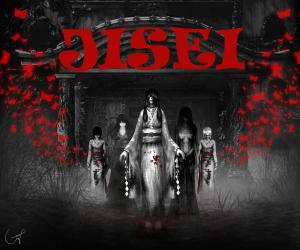

| Author Notes |
To get in the spirit of this kind of poem, I thought of my last dying breath. I know that my children's laughter will be the last thing on my mind before I die. I cherish that beautiful sound so much.
Jisei: the Japanese Death Poem Japan has a long history of jisei or death poems. Jisei is the farewell poem to life. The death poem is a genre of poetry that developed in the literary traditions of East Asian culture, most prominently in Japan as well as certain periods of Chinese history =============== TRADITIONAL JISEI ~ |
![]()
By Gypsy Blue Rose

I feel like a stranger. I’m in my new apartment. Looking outside my window, I see the Old Sacramento Railyard. The day is gray and gloomy and the view from my window is depressing. Family holidays have this effect on me. The ones I spend alone. I always think of the past when my children were little. Now I live alone. It's not a bad thing and most days I am fine. I treasure my independence, solitude, and serenity. I have a good life. But most holidays are hard.
| Author Notes |
Haibun is a Japanese poetic form that combines prose and haiku.
Thank you for reading, Gypsy Blue Rose Fanstory Haiku Teacher Member of the Haiku Society of America New Class Coming Up- Haiga Art - May 3rd -------------Guidelines for Writing Haibun in English------------- Haibun can be written in present and in past tense. The subject matter is autobiographical prose, travel journal, a slice of life, memory, dream short sketch of a person, place, event, or an object. Traditional topics: life as a journey, love affairs, illness, human concerns, and experiences. It's written in the first person (everything seen through the author's eyes), third person (he/she), or first person plural (we). Uses sensory images, concrete details, no abstractions. Uses language to suit the subject matter and mood (colloquial, formal, dialect). The length varies from very brief (1-2 sentences) with one haiku, to long prose entries with interspersed haiku, to memoir-length works. The styles vary too=Haiku/prose, Prose/haiku, Haiku/prose/haiku, Prose/haiku/prose/haiku/prose/haiku etc. The prose in haibun tells the story, gives information, defines the theme, creates a mood through tone. It provides a background to spotlight the haiku. Haiku in Haibun moves the story forward. Takes the narrative in another direction. Adds insight or another dimension to the prose resolves the conflict in an unpredictable way, or questions the resolution of the prose. The prose is the narrative and haiku is the revelation or the reaction. source: Haiku Society of America, Margaret Chula |
![]()
By Gypsy Blue Rose

I moved two weeks ago but I am still unpacking. I don’t have much more left but I know there are a couple of boxes somewhere in this house waiting for me. I can feel them. I gave away a lot of stuff and even tossed a lot in the garbage but I have more that I could get rid of. I tried the Konmari method. It’s basically going through all your possessions and getting rid of everything that doesn’t give you joy. It felt liberating but some things were too hard to let go so they linger.
![]()
By Gypsy Blue Rose

| Author Notes |
5/7/5
kigo summer |
![]()
By Gypsy Blue Rose

![]()
By Gypsy Blue Rose

| Author Notes |
![]()
By Gypsy Blue Rose
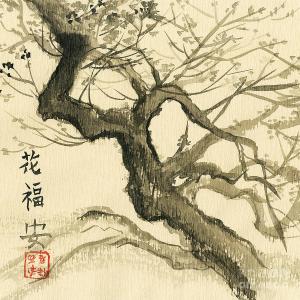
tree shaped like a ‘g’
shimmers in the morning sun—
river passes by
morning’s river walk
in peaceful bliss among baby boomers
nature's passion
written over neon red rose—
cool breeze caresses
| Author Notes |
During my morning walk by the river, I stopped for a while and sat on a bench. These haiku came to mind while I watched the water go by.
Haiku suite is two or more haiku and a Japanese poetic form. A common form is 17 syllables in a 5/7/5 format but due to the language difference in English is perfectly alright to write it in less than 17 syllables. It's also alright to write in one or two lines. For more information click here |
![]()
By Gypsy Blue Rose


| Author Notes |
I don't mean to offend the Spanish and British people. This is just a movie critique.
The stories followed the adventures of Captain Jack Sparrow (Johnny Depp), Will Turner (Orlando Bloom), and Elizabeth Swann (Keira Knightley). Characters such as Hector Barbossa (Geoffrey Rush) and Joshamee Gibbs (Kevin McNally) follow Jack, Will, and Elizabeth in the course of the films. The fourth film featured Blackbeard (Ian McShane) and Angelica (Penlope Cruz), while the fifth film will feature Armando Salazar (Javier Bardem), Henry Turner (Brenton Thwaites) and Carina Smyth (Kaya Scodelario). The films take place in a fictional historical setting; a world ruled by the British Empire, the East India Company and the Spanish Empire, with pirates representing freedom from the ruling powers. The film series 2003 with Pirates of the Caribbean: The Curse of the Black Pearl, grossed US$654 million 2006 , Pirates of the Caribbean: Dead Man's Chest US $1.1 billion 2007 Pirates of the Caribbean: At World's End, $1 billion 2011 Pirates of the Caribbean: On Stranger Tides, $1 billion 2017 A fifth film, subtitled Dead Men Tell No Tales, is set to be released on May 26 |
![]()
By Gypsy Blue Rose
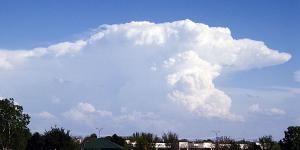
| Author Notes |
haiku review tips
Less than 17 syllables? What is the season? (kigo) What does the last line (satori) mean to you? No wrong answers. MariVal Bayles aka Gypsy Member of Haiku Society of America Fanstory Haiku Instructor June class: Haiku 101 How is the presentation? |
![]()
By Gypsy Blue Rose

| Author Notes |
haiku review tips
how many syllables? how is the presentation? what memories come to mind? is it about nature? what season? |
![]()
By Gypsy Blue Rose

After the harvest--
daylight drips away cold creeps
on the fallow field,
bitter winds whisper his name
telling us he's on his way.
Father's supper
on the stove simmering,
apron on the floor,
mother lying motionless,
my tears. They burn, flow and fall.
The last thing mom did
was for us, then her heart stopped.
The truth was too harsh.
Arsenic in the warm stew
mixing with his betrayal.
Mom's letter to us
was brief, "Don't eat supper!"
Pa won't touch us again
Death arrives and claims his soul
smiles at soup flask in his hand
| Author Notes |
Hitcher and I collaborated on this linked tanka poem. It's similar to rengu (Japanese) but free form. This is the end. The father came home, ate the stew and died. Now, the children are free of his abuse and placed in a foster home where they will be safe.
The form is 31 syllables or less in a 5/7/5/7/7 pattern. The way it worked was this, I wrote three lines and he followed with two lines. We didn't know where this is going. This tale of murder, betrayal, and abuse, it's developing as we go. ::::::::::::::::::::::::::::::::::::::::::::::::::::::: Divided by author After the harvest-- daylight drips away cold creeps on the fallow field, by Gypsy Blue Rose ------------------------- bitter winds whisper his name telling all he's on his way. by Hitcher ----------------------- Father's supper on the stove simmering, apron on the floor, by Gypsy Blue Rose ------------------------- mother lying motionless, my tears. They burn, flow and fall. by Hitcher ----------------------- The last thing mom did was for us, then her heart stopped. The truth was too harsh. by Gypsy Blue Rose ------------------------- Arsenic in the warm stew mixing with his betrayal. by Hitcher ------------------------------ Mom's letter to us was brief, "Don't eat supper!" Pa won't touch us again by Gypsy Blue Rose ------------------------- Death arrives and claims his soul smiles at soup flask in his hand by Hitcher ------------------------------ Thank you for reading, By Gypsy Blue Rose Fanstory Haiku Instructor Haiku Society of America Member Next class starts in June |
![]()
By Gypsy Blue Rose

| Author Notes |
Hitcher and I are writing a linked tanka. It's similar to rengu but free form. Because we are both big horror fans, our plot seems to lean that way.
The form is 31 syllables or less in a 5/7/5/7/7 pattern. The way it works is this, I write three lines and he follows with two lines. We don't know where this is going. This tale of murder, betrayal, and abuse, it's developing as we go. It's a lot of fun! Thank you for reading. Here is the complete poem thus far ... After the harvest-- daylight drips away cold creeps on the fallow field, bitter winds whisper his name telling us he's on his way. Father's supper on the stove simmering, apron on the floor, mother lying motionless, my tears. They burn, flow and fall. The last thing mom did was for us, then her heart stopped. The truth was too harsh. Arsenic in the warm stew mixing with his betrayal. Mom's letter to us was brief, "Don't eat supper!" Pa won't touch us again ::::::::::::::::::::::::::::::::::::::::::::::::::::::::::::::::::::::::::::::::::::::::::::::::::::::::::::::::::::::::::::::::::::::::::::::::::::::::::: Divided by author After the harvest-- daylight drips away cold creeps on the fallow field, by Gypsy Blue Rose ------------------------- bitter winds whisper his name telling all he's on his way. by Hitcher ----------------------- Father's supper on the stove simmering, apron on the floor, by Gypsy Blue Rose ------------------------- mother lying motionless, my tears. They burn, flow and fall. by Hitcher ----------------------- The last thing mom did was for us, then her heart stopped. The truth was too harsh. by Gypsy Blue Rose ------------------------- Arsenic in the warm stew mixing with his betrayal. by Hitcher ------------------------------ Mom's letter to us was brief, "Don't eat supper!" Pa won't touch us again By Gypsy Blue Rose Fanstory Haiku Instructor Haiku Society of America Member |
![]()
By Gypsy Blue Rose

After harvest--
daylight drips away cold creeps
on the fallow field,
bitter winds whisper his name
telling all, he’s on his way.
Father’s supper
on the stove simmering,
apron on the floor,
mother lying motionless,
my tears. They burn, flow and fall.
The last thing mom did
was for us, then her heart stopped.
The truth was too harsh...
arsenic in the warm stew
mixing with his betrayal.
| Author Notes |
Renga is a genre of Japanese collaborative poetry. A renga consists of at least two ku or stanzas. The opening stanza of the renga, called the hokku, became the basis for the modern haiku form of poetry.
This renga is a challenge between Hitcher and me. After the harvest-- daylight drips away cold creeps on fallow field, by Gypsy Blue Rose ------------------------- bitter winds whisper his name telling all he's on his way. by Hitcher ----------------------- Father's supper on the stove simmering, apron on the floor, by Gypsy Blue Rose ------------------------- mother lying motionless, my tears. They burn, flow and fall. by Hitcher ----------------------- The last thing mom did was for us, then her heart stopped. The truth was too harsh. by Gypsy Blue Rose ------------------------- Arsenic in the warm stew mixing with his betrayal. by Hitcher |
![]()
By Gypsy Blue Rose

| Author Notes |
This is the way I feel when I go to the ocean.
Mother= Mother Nature minuscule=very small sentient=all living conscious things, people, animals, plants, insects, etc... shasei haiku is a sketch from life more information haiku review tips less than 17 syllables? does it evoke memories and/or emotions? how is the presentation? is it about nature? what does it mean to you? |
![]()
By Gypsy Blue Rose
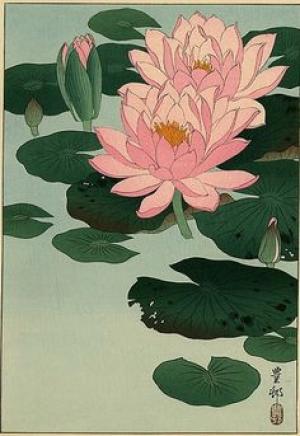
| Author Notes |
Locusts are grasshoppers, such as this migratory locust, that have entered into a migratory phase of their life.
haiku review tips= presentation, brief, content, brought memories? |
![]()
By Gypsy Blue Rose

| Author Notes | painting Fallow field in winter By Mark Poule |
![]()
By Gypsy Blue Rose

| Author Notes | Tanka is a Japanese poem consisting of five lines, the first and third of which have five syllables and the other seven, making 31 syllables in all and giving a complete picture of an event or mood. |
![]()
By Gypsy Blue Rose

![]()
By Gypsy Blue Rose

![]()
By Gypsy Blue Rose
![]()
By Gypsy Blue Rose

| Author Notes |
I saw a young man with his fragil grandpa on the train today. He was taking good care of him and guiding him along the ramp. This senryu came to me.
A senryu is very similar to a haiku but it doesn't required a seasonal word or kigo and it focus on human nature. 17 Japanese syllables in 5/7/5, in English it can be less than 17 syllables. |
![]()
By Gypsy Blue Rose
| Author Notes |
Haiku is a Japanese poetry form. The main characteristics are: 17 Japanese syllables in a 5/7/5 form but in English it can be less; brief, the rule of thumb is what can be said in one breath; insightful; about nature and the way humans relate to nature. There are many other rules.
Thank you for reading Gypsy |
![]()
By Gypsy Blue Rose
| Author Notes |
Haiku is a Japanese type of poetry characterised by 17 Japanese syllables, a reference to nature, expressed in present tense, brief, and insightful. In English the syllable count varies but it's usually short, long, short format. Sometimes the rules vary especially with contemporary haiku.
climate change noun a change in global or regional climate patterns, in particular a change apparent from the mid to late 20th century onwards and attributed largely to the increased levels of atmospheric carbon dioxide produced by the use of fossil fuels. Today I was sitting outside in the cold when the last few days have been in the 90s. My computer crashed and I am waiting for a new computer. I always take pride on attractive presentations but with my Kindle this is the best I can do. Thank you for reading Gypsy |
![]()
By Gypsy Blue Rose
| Author Notes | Haiku in English-language does not have to be 5/7/5 |
![]()
By Gypsy Blue Rose
| Author Notes |
My laptop crashed so I have to post plain haiku.
Thank you for reading, my friends. Gypsy |
|
You've read it - now go back to FanStory.com to comment on each chapter and show your thanks to the author! |
![]()
| © Copyright 2015 Gypsy Blue Rose All rights reserved. Gypsy Blue Rose has granted FanStory.com, its affiliates and its syndicates non-exclusive rights to display this work. |
© 2015 FanStory.com, Inc. All Rights Reserved. Terms under which this service is provided to you. Privacy Statement